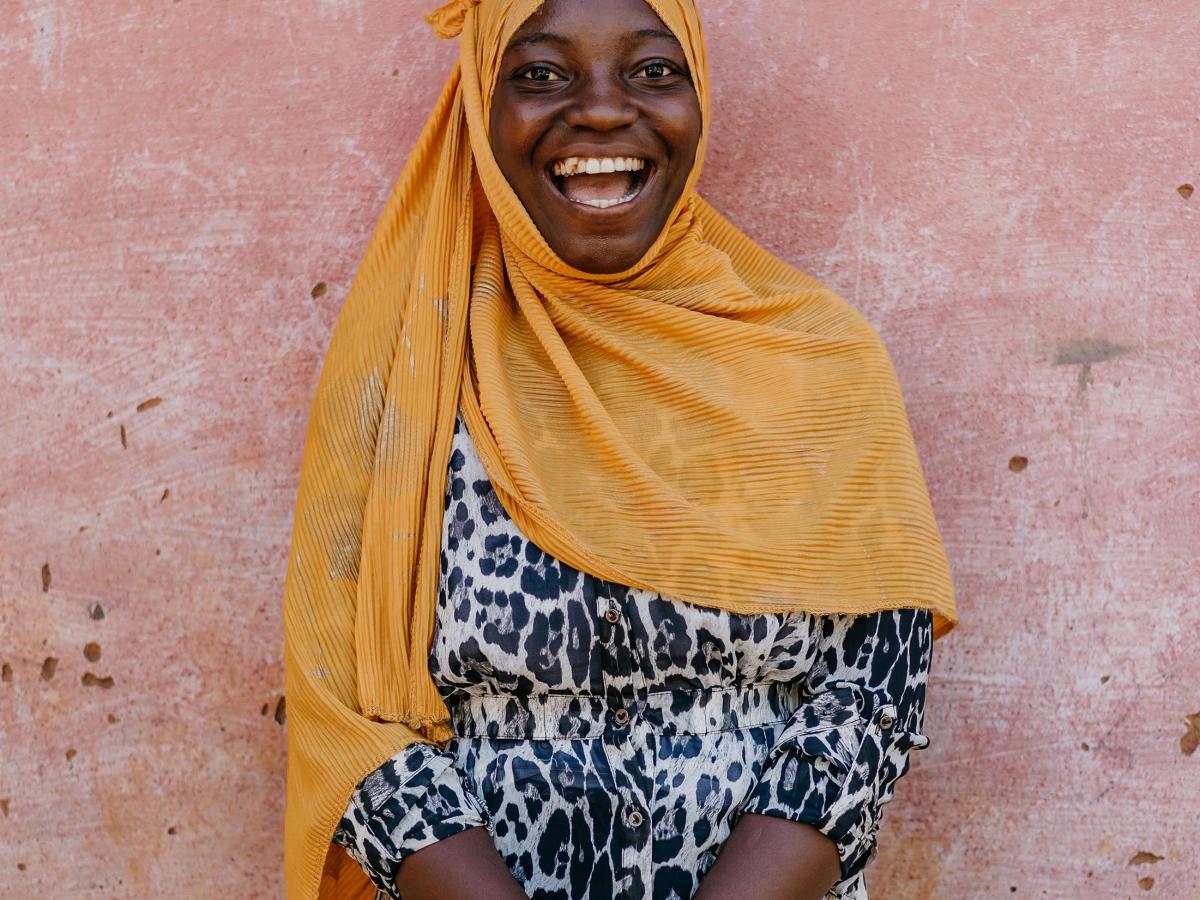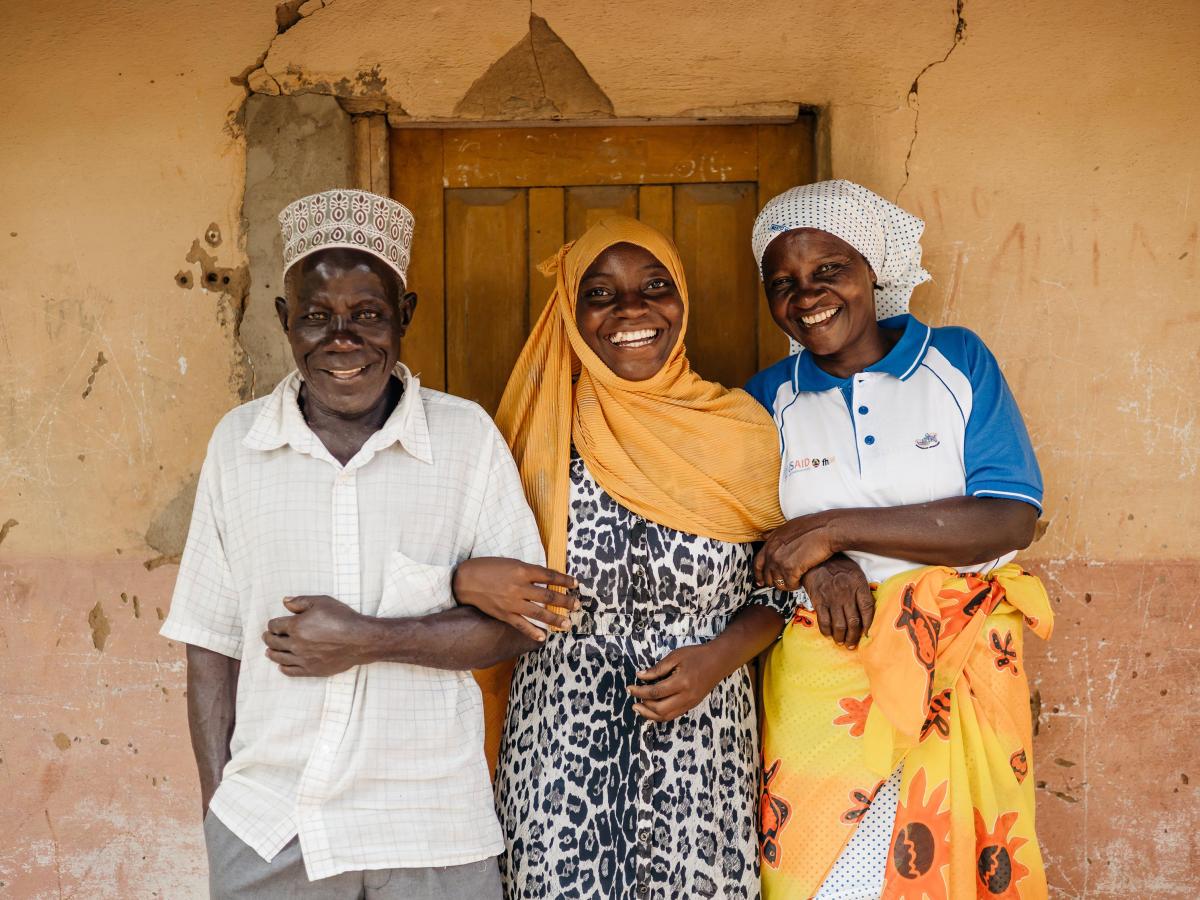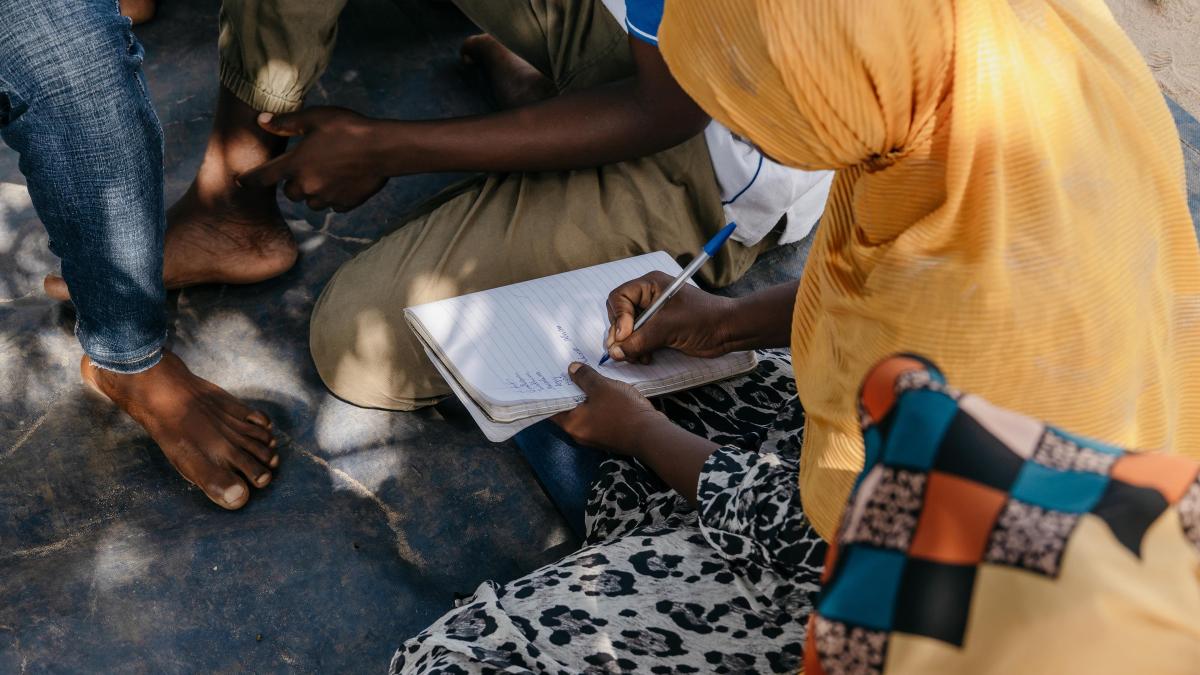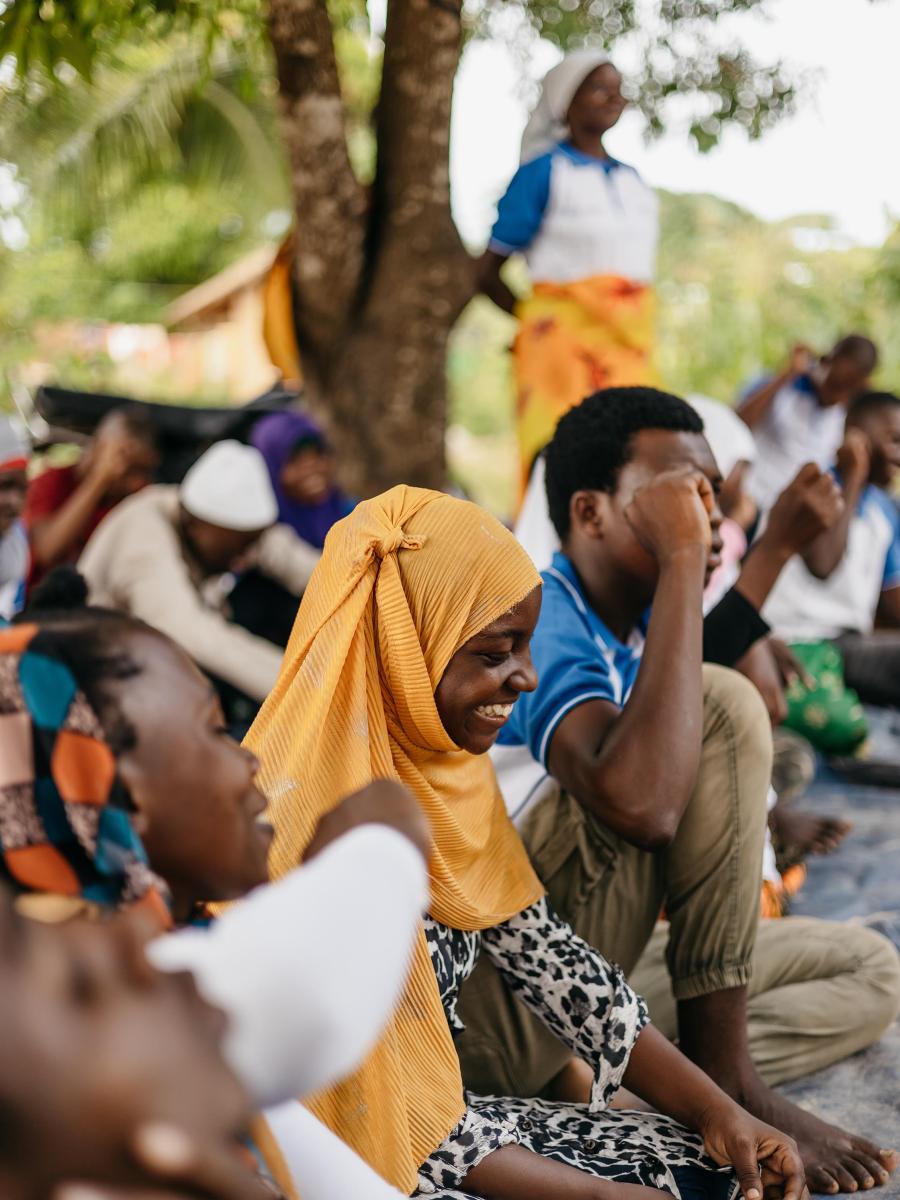Sulfa stands against child marriage
How one brave voice can spark a movement and bring about real change.
Many girls around the world are forced into marriage, or a less formal marital union, at a very young age. For Sulfa Wathena, the pressure to marry came at the age of 15.
“My mother had a friend who knew a man,” Sulfa says. “That man had money.”
Her mother, Fatima, was insistent she marry this man. It would be immensely helpful for the family — Sulfa’s father had no work, and they had very little money.
But Sulfa resisted. She knew she wanted something different for herself, and she chose to commit to her education instead. At first, her mother objected, but her father, Muriricho, supported her decision.
“My dad said, ‘If she prefers to study, if she doesn’t want to marry, let her continue studying.’”
Sulfa lives in Mozambique, where 1 in 2 girls are married or in marital union before they turn 18. It is the world’s fifth-highest rate of child marriage.
For many of these girls, the decision to marry does not feel like a choice, and the risks and tradeoffs are steep. Child marriage puts girls at higher health and economic risk than their unmarried peers. They are more likely to drop out of school and they are at greater risk of early childbearing, which increases the odds of maternal and infant mortality.



Top Left: Sulfa smiles for the camera. Top right: Sulfa stands outside her home in Mozambique’s Nampula Province, flanked by her father Muriricho and her mother Fatima. Bottom: Sulfa takes notes during a health committee meeting. Photo Credit: Mbuto Machili
Sulfa says she has had friends die during pregnancy and after childbirth, and one of her friends lost her day-old baby.
Sulfa was well aware of the risks of child marriage, because she had participated in the Nanare health committee, which is organized by local partners of the USAID/Alcançar project. FHI 360 leads the Alcançar consortium.
“I said no, I don’t want to marry,” Sulfa says. “I am not prepared to get married, because if I get married, I will have to get pregnant … If I get pregnant, I can lose my own life and lose the child.”
Committees for change
The community health committee that Sulfa is part of was created by the Alcançar: Achieving Quality Health Services for Women and Children project, funded by USAID and led by FHI 360 in collaboration with a consortium of local and international partners.
In a multitude of ways, Alcançar works to improve health and well-being for women, newborns and children in the Nampula and Zambezia provinces, simultaneously advancing social equity. Supporting community-led health committees to empower young people with information about their health and rights is a critical part of this work.
Since its start in 2019, the Alcançar project has reached more than 290,000 Mozambican girls and boys, and maternal mortality in 35 participating health facilities has decreased by 64%.
“We forced our children to marry too young; they were dying,” shares the leader of the Nanare health committee. “Alcançar showed us the advantages of waiting.”

Sulfa laughs during a health committee meeting. Photo Credit: Mbuto Machili
In Mozambique, of girls ages 15 to 17 who are married or in a marital union, only 10% are still in school. Conversely, 70% of Mozambican girls who have never been married or in a marital union are in school.
Secondary education provides many benefits for girls to have a healthier, more secure future. The World Bank, for example, states that a secondary school education provides women with higher earnings, an increased ability to make decisions about their health care, and an increase in their decision-making within their household.
Community-led health committees supported by Alcançar are helping usher in an era of change, encouraging girls like Sulfa to define their own futures. Committees consist of 20 to 30 members including men, women and adolescents. The adult members include community health agents and activists, community and religious leaders, and midwives.
At meetings, members discuss maternal and child health messages and learn how to disseminate the information to their families, friends and neighbors. Sulfa says she feels honored to share what she’s learned with younger adolescents, assisting them with counseling and referrals.
“I like to help other people and advocate for the services that I learned about from Alcançar,” she says.
Today, Sulfa is nearly 18 and the first person in her family to enroll in post-secondary education; she’s studying to be a nurse through a mid-level program. She’s embracing her identity as a dedicated student, daughter and friend.
Sulfa’s father Muriricho believes that her drive for education, both through the Nanare community health committee and her desire to attend university, is a benefit to their entire family.
“We cannot have all the family sleeping without knowledge,” he says.
Now, Sulfa will live a future of her own choosing — and get married only when she’s ready.

